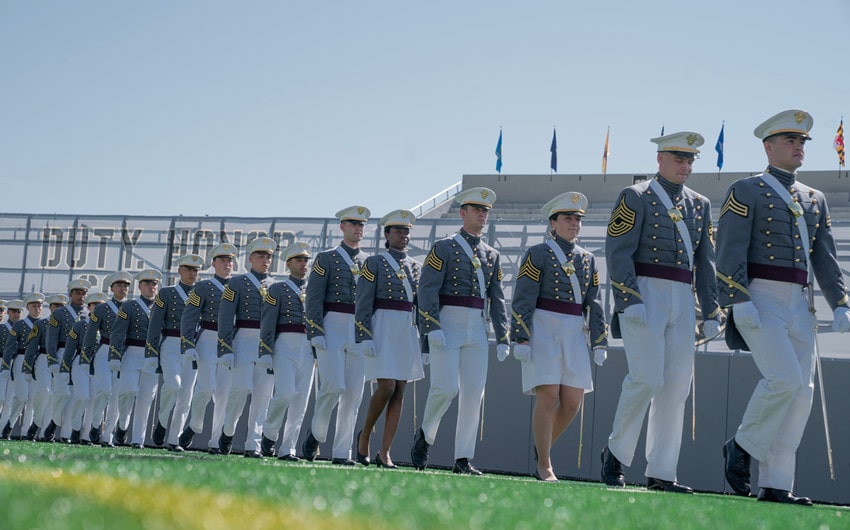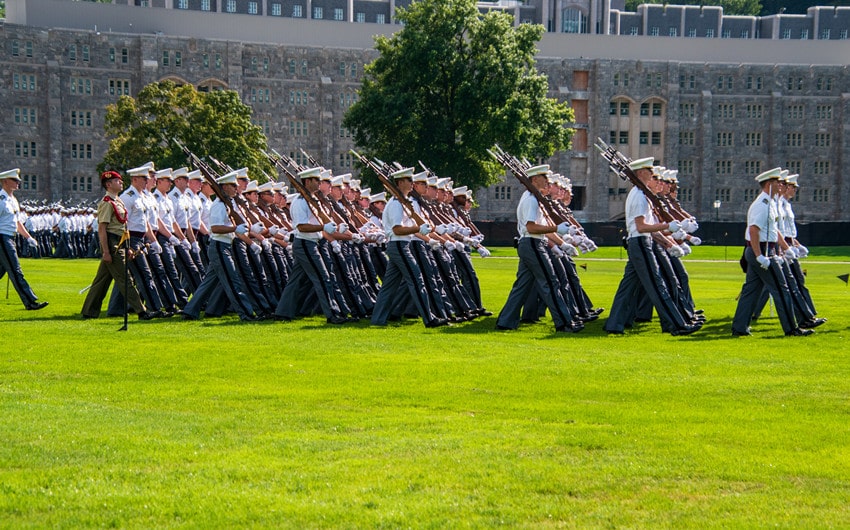Inside Look at West Point Jobs After Graduation and Careers
Graduating from the U.S. Military Academy at West Point isn’t just about earning a degree—it’s about stepping into a life of purpose and leadership. For many cadets and their families, questions about the future start early: What comes next? Where will this path lead? That’s where understanding West Point jobs after graduation becomes so important.
From commanding troops to flying helicopters or managing cyber operations, the opportunities are wide-ranging and deeply meaningful. Whether you’re considering West Point or simply curious, this guide breaks down what career life looks like after those final salutes and tossed caps.
Understanding the West Point Commitment
Graduating from West Point comes with more than a diploma—it comes with a commitment to serve. Each cadet agrees to a minimum of five years of active duty service in the U.S. Army after graduation. This isn’t just a job requirement; it’s a promise to lead, protect, and make real decisions that impact soldiers and missions around the world.
The Army assigns graduates to specific branches based on a combination of their preferences, performance, and the needs of the service. While cadets can rank their choices, the final decision balances personal strengths with where the Army needs leaders most. It’s a structured but thoughtful process that ensures the right people land in the right roles.
Beyond those five years, many officers choose to stay in the Army and continue their careers, while others transition to civilian life. Whether they stay for the minimum term or make it a lifelong path, West Point graduates leave with leadership experience, advanced training, and a foundation that opens doors far beyond the military.
Branch Assignments: First Career Step
At West Point, choosing a branch is one of the most exciting—and defining—moments in a cadet’s final year. This decision determines their initial career path within the Army, such as Infantry, Armor, Aviation, Cyber, Intelligence, or Engineering. Each branch offers its own culture, responsibilities, and challenges, shaping the graduate’s daily work and long-term direction.
The branch assignment process considers several factors: cadet preferences, class rank, performance evaluations, and the Army’s operational needs. Cadets submit their top choices, and through a structured matching system, they are assigned to a branch that aligns with their strengths and leadership potential. This system ensures a balance between individual goals and military readiness.
Once assigned, graduates attend a branch-specific Basic Officer Leader Course (BOLC), which prepares them with the technical and tactical skills needed to succeed in their first assignment. These training programs vary in length and intensity depending on the branch—for example, Aviation officers must complete flight school, while Engineers undergo in-depth technical training.

Common Job Roles for New Officers
Platoon Leader: Most new officers begin their Army careers as platoon leaders, a critical leadership role responsible for 20 to 40 soldiers. As a platoon leader, a second lieutenant manages daily operations, training schedules, logistics, and the overall readiness of their unit. It’s a hands-on position that tests leadership under pressure and requires trust, quick thinking, and adaptability.
Staff Officer Roles: In some cases, new officers may serve in junior staff roles, helping coordinate missions, manage resources, or handle administrative duties at the battalion or brigade level. These roles allow officers to learn about the broader operational structure of the Army while working closely with more senior leaders.
Specialized Leadership Positions: Depending on the branch, graduates may also step into unique positions early in their careers. For example, Cyber branch officers may lead technical teams defending networks and analyzing threats, while Signal Corps officers might oversee communication systems in complex field environments. Each role gives officers a chance to put their training into action right away.
Career Progression Within the Army
Rank Advancement: Army officers typically follow a structured promotion timeline. After serving as a second lieutenant, most are promoted to first lieutenant within 18–24 months, and then to captain around their fourth year of service. Promotions are based on time in service, performance, and successful completion of required training and leadership evaluations.
Advanced Education and Training: Many West Point graduates continue their education while serving. Opportunities include earning a master’s degree through fully funded programs, attending specialized military schools like Ranger School or Airborne School, or participating in interagency fellowships. These programs enhance both technical skills and strategic thinking, preparing officers for broader responsibilities.
Leadership and Command Roles: As officers gain experience, they move into company-level command (typically as a captain), overseeing 100+ soldiers. With each new rank, responsibilities grow—majors and lieutenant colonels take on planning, operational oversight, and leadership of larger units. For those who remain in the Army long term, positions in policy, education, and even Pentagon-level assignments become possible. This structured but flexible path offers continuous growth and impact at every stage.
Specialized Career Paths
Cyber and Intelligence Roles: For graduates with strong technical backgrounds or interests in national security, branches like Cyber and Military Intelligence offer cutting-edge career paths. Officers in these roles analyze threats, defend digital infrastructure, and lead cyber operations. These assignments often involve collaboration with agencies like the NSA or U.S. Cyber Command and may require additional clearances and technical certifications.
Medical and Legal Professions: Some West Point graduates pursue careers in the Army Medical Department or as part of the Judge Advocate General’s (JAG) Corps. While these tracks often require further education—such as medical school or law school—they offer meaningful ways to serve in specialized fields. The Army supports these goals through scholarships and career transition programs like the Health Professions Scholarship Program (HPSP).
Aviation and Engineering: Graduates selected for Aviation undergo rigorous training to become Army pilots, flying helicopters such as the Black Hawk or Apache. Meanwhile, Engineers might design infrastructure in combat zones, lead construction projects, or support disaster relief operations. These technical branches combine leadership with hands-on problem-solving and often lead to highly skilled career paths both in and outside the Army.
Civilian Career Opportunities After Service
Leadership Roles in Business and Industry: After completing their military service, many West Point graduates move into civilian careers that value discipline, leadership, and strategic thinking. Fields like management consulting, finance, and operations frequently seek out former officers for their ability to lead teams and manage complex systems. Companies like Goldman Sachs, Deloitte, and Amazon often recruit West Point alumni for mid- to senior-level roles.
Technology and Engineering Careers: Graduates with backgrounds in Cyber, Engineering, or Signal branches often find roles in the tech industry. Whether managing systems security or leading software projects, the technical experience gained in the Army is a strong foundation for careers in companies such as Microsoft, Palantir, or Lockheed Martin. Civilian employers recognize the value of hands-on, mission-critical experience.
Entrepreneurship and Public Service: Some alumni take what they’ve learned and start their own ventures—tech startups, leadership training firms, or nonprofits. Others move into government or education, using their service experience to impact communities. The discipline and vision instilled at West Point often translate into a lifelong drive to lead and make a difference, wherever that may be.
Support and Networking for Graduates
The Long Gray Line: West Point’s alumni network, known as the Long Gray Line, spans every corner of the world. This community of graduates provides mentorship, job connections, and career support to fellow alumni. Whether you’re transitioning to civilian life or seeking guidance for your next Army move, there’s likely a fellow West Pointer ready to help.
Career Transition Resources: Graduates benefit from numerous transition programs such as the Army Career and Alumni Program (ACAP) and the West Point Association of Graduates (AOG) career services. These offer résumé workshops, interview coaching, job boards, and career fairs tailored to military experience. Many employers trust and actively seek West Point-trained professionals.
Mentorship and Lifelong Ties: The relationships formed at West Point don’t end at graduation. Officers often keep in touch with classmates, instructors, and mentors throughout their careers. These bonds foster a strong sense of belonging and open doors professionally and personally, making the journey after West Point one supported by an enduring community.



